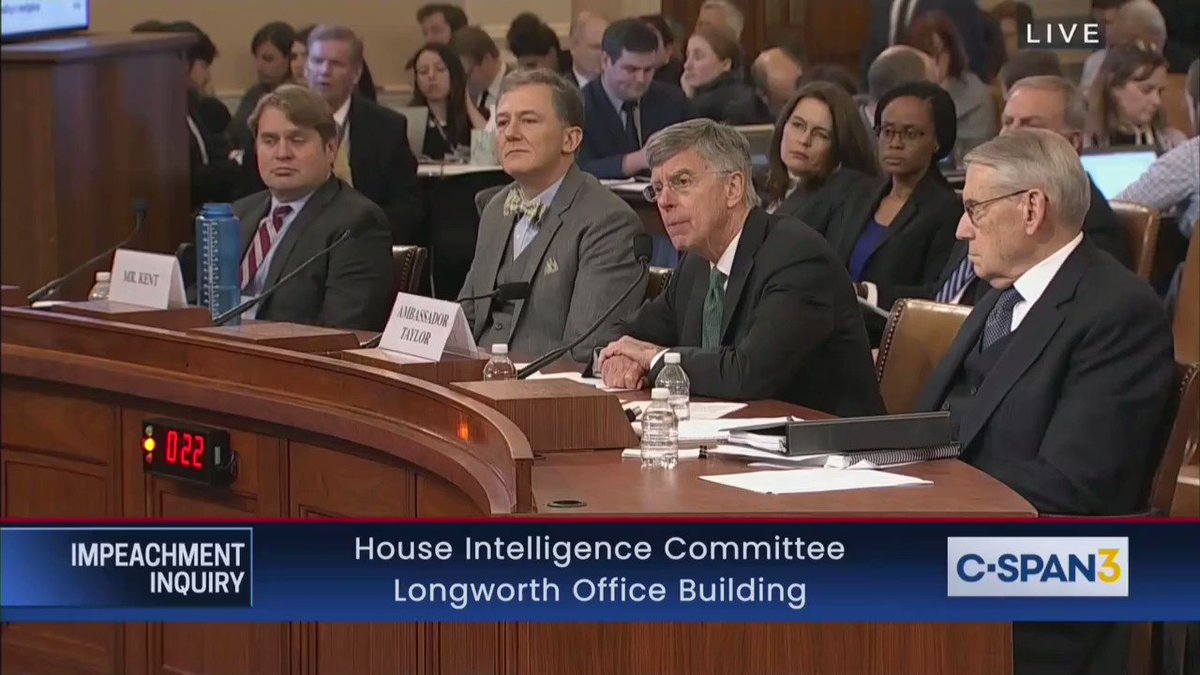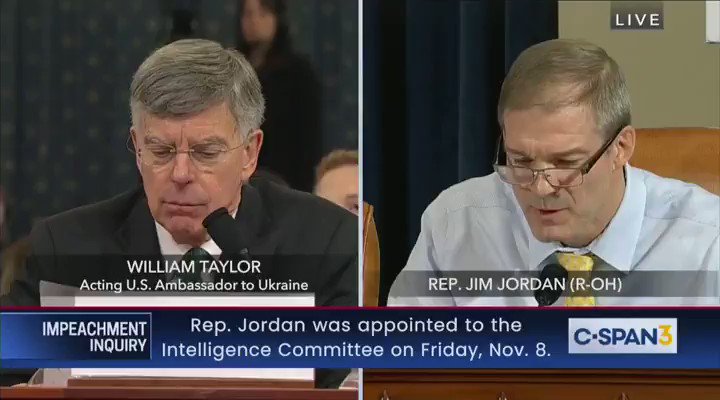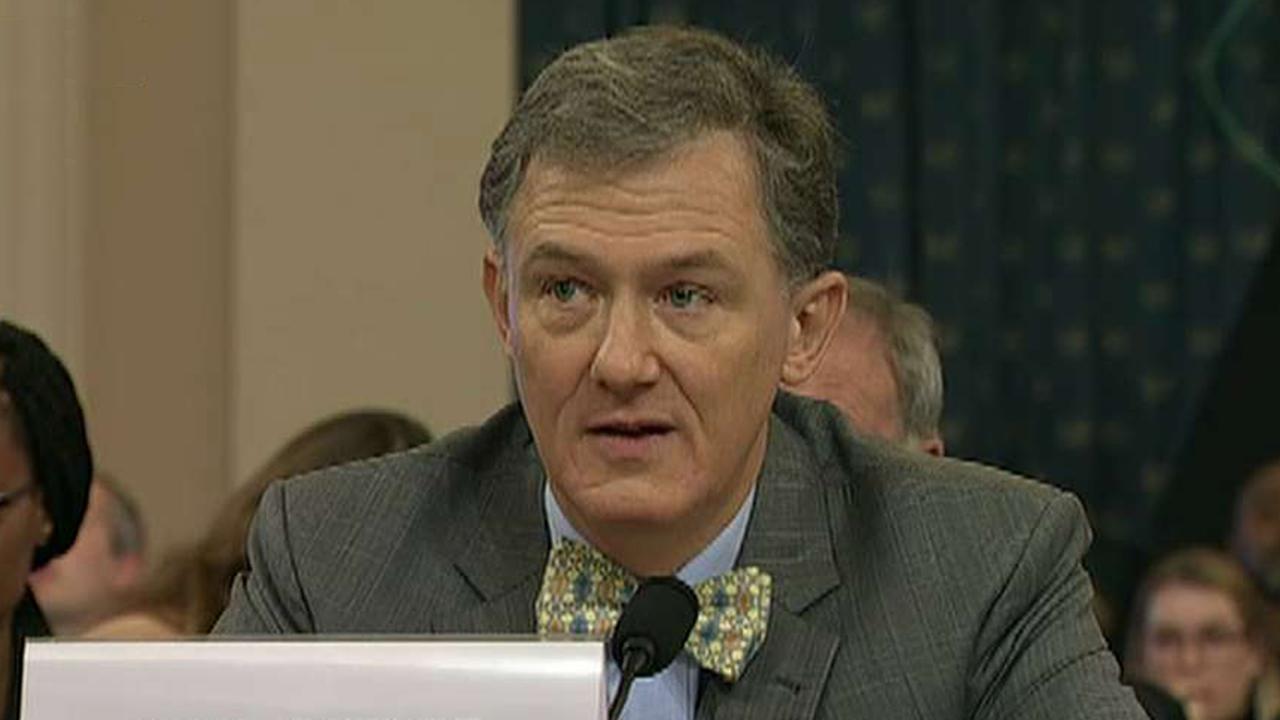Day One of public impeachment hearings puts pressure on moderate Dems
Trump denies knowledge of July 26 conversation
White House dismisses new testimony; chief White House correspondent John Roberts reports.
All eyes were on moderate House Democrats in swing districts Wednesday night, after the first day of public hearings in the impeachment inquiry against President Trump wrapped up with no major revelations -- but also highlighted weaknesses in Democrats' key witnesses, who relied primarily on second-hand information and never once interactedwith the president.
At one point in Wednesday's hearing, Rep. Mike Quigley, D-Ill., even appeared to embrace hearsay testimony, claiming that "hearsay can be much better evidence than direct" and that "countless people have been convicted on hearsay because the courts have routinely allowed and created, needed exceptions to hearsay." It was unclear which of those limited exceptions would apply to Wednesday's testimony -- and whether Quigley's argument would persuade critical swing-vote Democrats.
The House is now comprised of 431 members, meaning Democrats need 217 yeas to impeach Trump. There are currently 233 Democrats, so Democrats can only lose 16 of their own and still impeach the president. 31 House Democrats represent more moderate districts that Trump carried in 2016.
Freshman Rep. Elissa Slotkin, D-Mich. -- who flipped a GOP district in 2018 that Trump won by 7 points in 2016 -- told Fox News that she was tentatively weighing all the evidence.
"My constituents expect me to make an objective decision," Slotkin said as the hearings concluded, "not one based on an hour of testimony."
Slotkin went on to acknowledge that launching an impeachment inquiry was a "politically tough thing to do."














